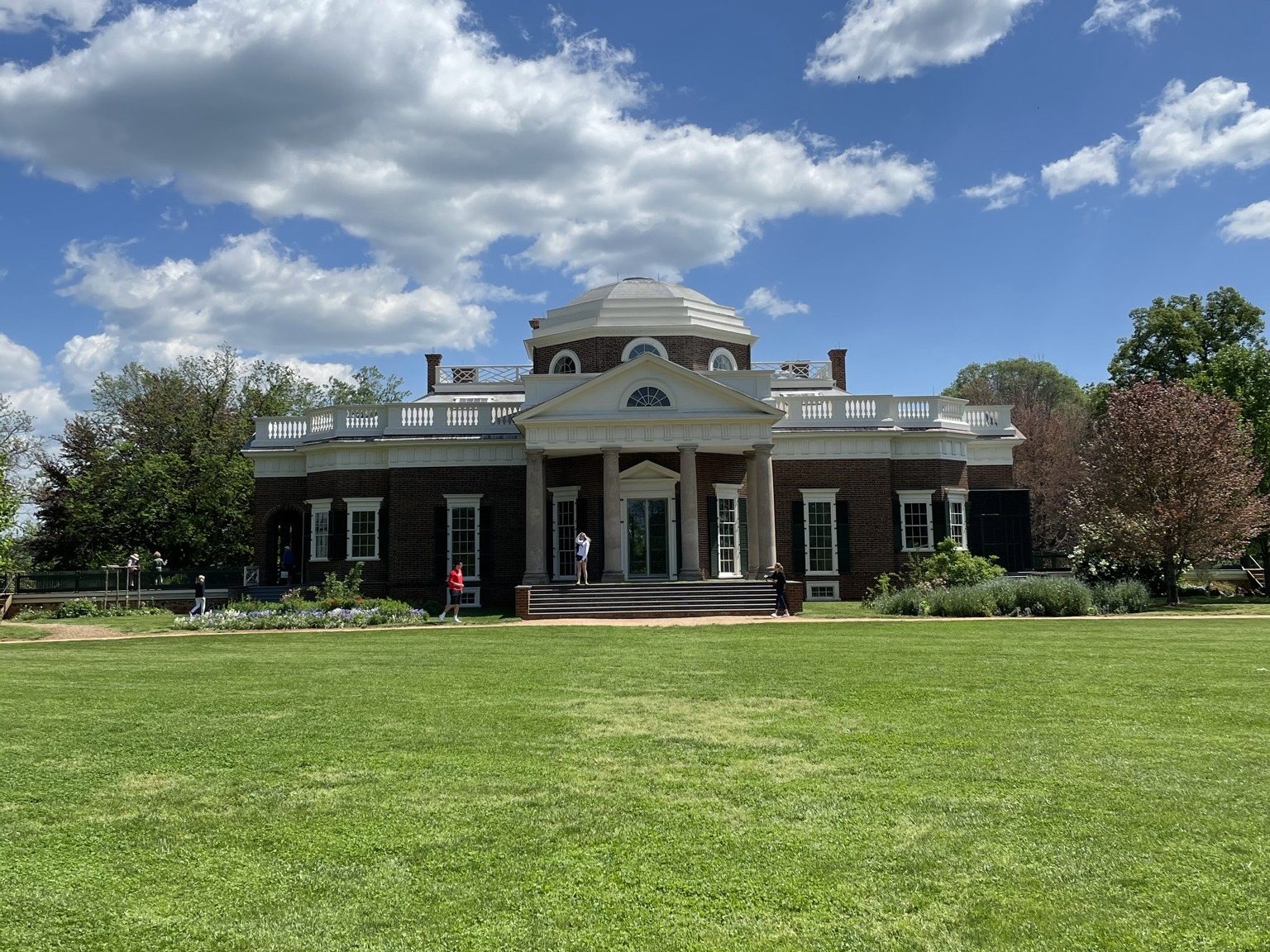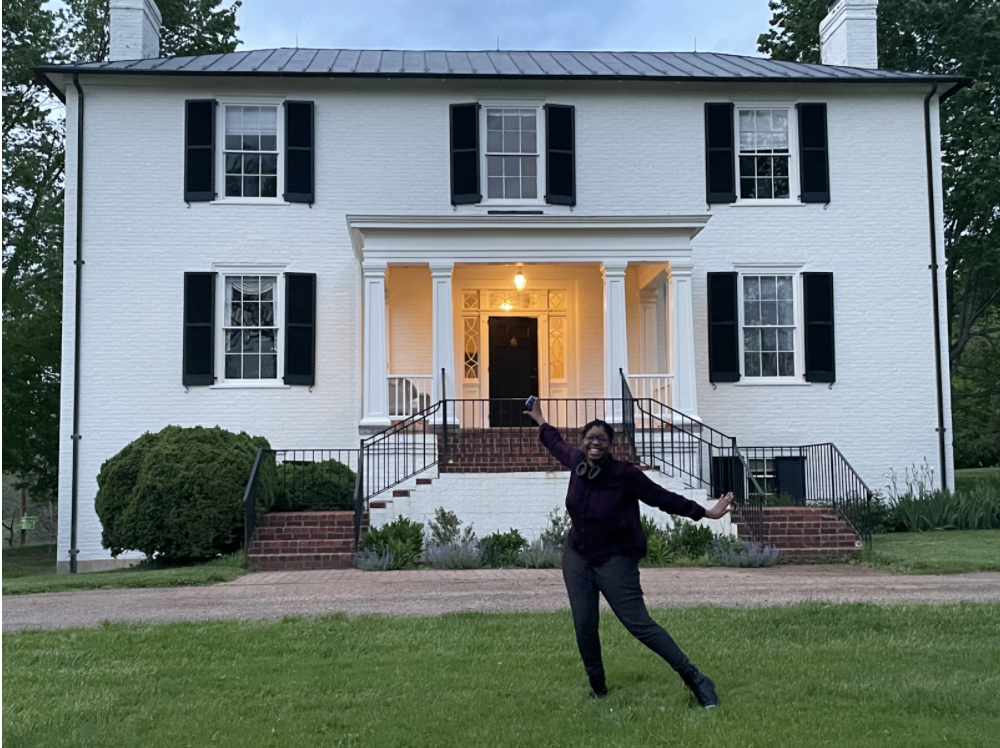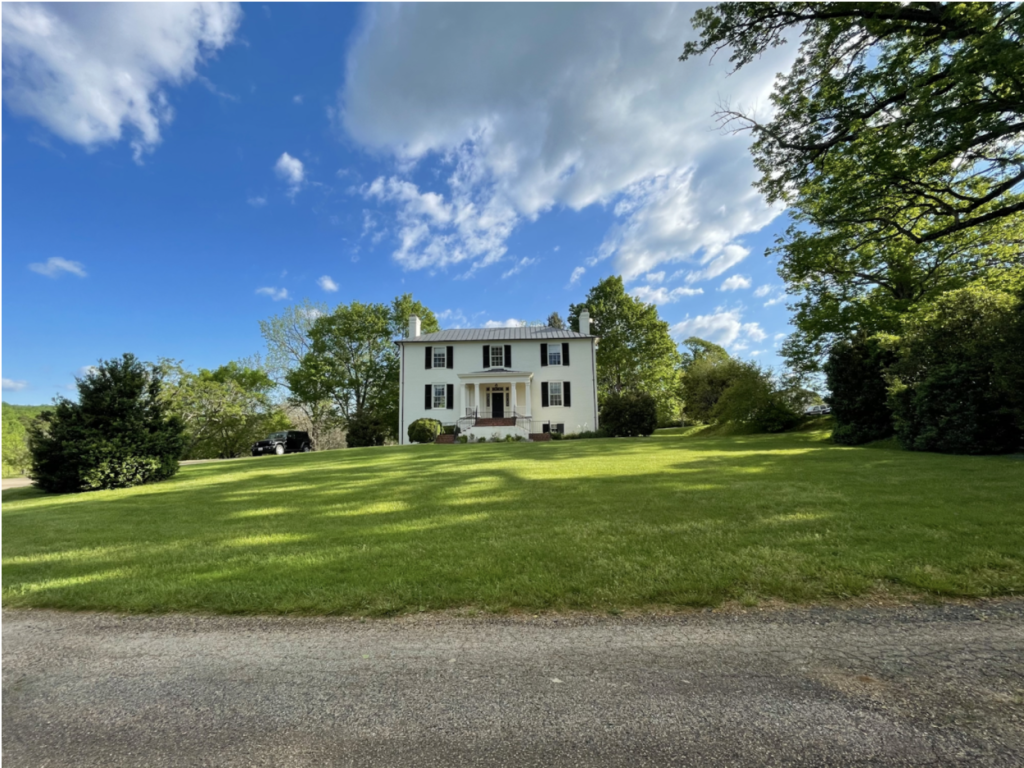As part of their research for BLACK GIRL IN PARIS, a musical following Sally Hemings’ years in Paris and the beginnings of the relationship that would define her legacy, R&D Group members AriDy Nox and Jacinth Greywoode recently took a research trip to Monticello. Below, they discuss their thoughts coming away from Thomas Jefferson’s home.

What was the most important/interesting thing you learned while at Monticello?
Ari: What really struck me while at Monticello was this juxtaposition of beauty and just how many enslaved people it took to create/maintain it. We arrived and I was thinking we would be able to walk everywhere, that Jefferson owned maybe a mile of land. He owned 8 miles of land, only half of which belongs to the Thomas Jefferson Foundation, and he owned over 600 slaves in his lifetime to maintain that land. The idea of the magnitude of the cruelty needed to force 600 people to work 8 miles of land/5000 acres of land was really hard for my brain to comprehend. But the fact that Monticello itself was so gorgeous made it even harder. It was almost impossible for me to wrap my mind around living in one of the most beautiful landscapes I have ever seen while being held in captivity. The duality of the two truths just kept hitting me over and over. In a way I think that’s what the show is about too. It is about Sally, the freedom and joy that is afforded her in this period of time, and the denial of freedom and oppression that is the continuous context of her life. It feels impossible sometimes to accomplish both, and seeing that contradiction in a physical landscape just hit me really hard.
Jacinth: Same here. The question that we kept asking ourselves: How did the slaves who worked here/helped build Monticello feel about the work of their hands? Because at the end of the day, they created one of the most beautiful places in America (one of only 24 UNESCO World Heritage sites in the US—and the only personal residence—a designation that places it in the same category as sites like the Great Wall of China and the Acropolis in Athens). Could they take any ownership of and pride in what they built? As Brandon Dillard, Manager of Historic Interpretation and our tour guide during our visit, said, Monticello is an almost perfect metaphor for America: the beauty and promise on the surface, the unspoken realities behind the façade, and the willful denial and determined aspiration that reconciling this cognitive dissonance requires.
James Hemings, Sally’s older brother represents this duality in another even more solemn context. We were reminded on our visit that James committed suicide at 36 after his return to the US (even after his manumission), and while we cannot know for sure, it is easy to speculate why a talented black man—one of the premier chefs in the world who studied with the highest masters of French cuisine and is responsible for bringing much of the influence of French cooking technique to America—might decide to take his own life in the context of late 18th century America.

What was the most surprising thing you learned while at Monticello?
Ari: There is apparently a book/transcript of a medium who claims to have been possessed by Sally Hemings! We did not get to read it while we were in the library and it’s probably the first thing I want to read when we return. We also heard a story about a man who had come to the library claiming he was a reincarnation of Thomas Jefferson. It’s just so interesting what a space like Monticello attracts.
Jacinth: James Hemings may or may have not invented an early version of chicken and waffles. Praise be. Oh also that Monticello itself was modeled after architecture Jefferson encountered while in Paris (he actually demolished the original building when he returned from France and began building an entirely new structure).
How did you deal with the ghosts at Monticello?
Ari: I am way more superstitious than Jacinth, so I wanted this question included. I think especially on places like plantations, there is energy there accumulated from all the suffering, and I don’t think it’s erroneous to think of that energy as potentially spirits of those who have not/cannot leave that space. And we had a few weird things happen while we there. The two standouts were when we were touring Monticello and a huge tree branch, about the size of a small tree, almost fell on us and our tour guide. We all saw it begin to fall and stopped and just stared for a moment. It was so startling. (NOTE FROM JACINTH: AriDy asked “Are they telling us to stop writing??” And I responded “It’s a preemptive warning. The tree warned us before the branch fell so it wouldn’t actually fall on us. ‘Do us right, y’all…’, they are saying.”)
And then that night or the following night I was frightened out of my sleep by a bird who was insistently trying to bust through my window and into my room. It came to my window about two or three times and the first few times I didn’t see it. I only heard the sound and was terrified, thinking it was mice or something in the old building we were staying in. But when I finally saw the bird, it got really still, looked me straight in the eye, and then flew off. Both of those moments felt spiritually charged. Luckily I had packed a small altar for myself and kept my head wrapped at night and had a few mementos from my grandfather and my mother to keep me protected.
Jacinth: I just had to laugh (particularly when I was awoken at 2 in the morning by AriDy’s frantic screams when the bird began flinging itself against her window). Laughter is my go-to replacement for fear/nervousness/discomfort/wonder/anger/whatever-have-you. But there is something powerful that hits you when you think of the history the walls and roof you are staying under have seen.

To learn more about The Civilians and to access exclusive discounts to shows, join our email list at TheCivilians.org.










